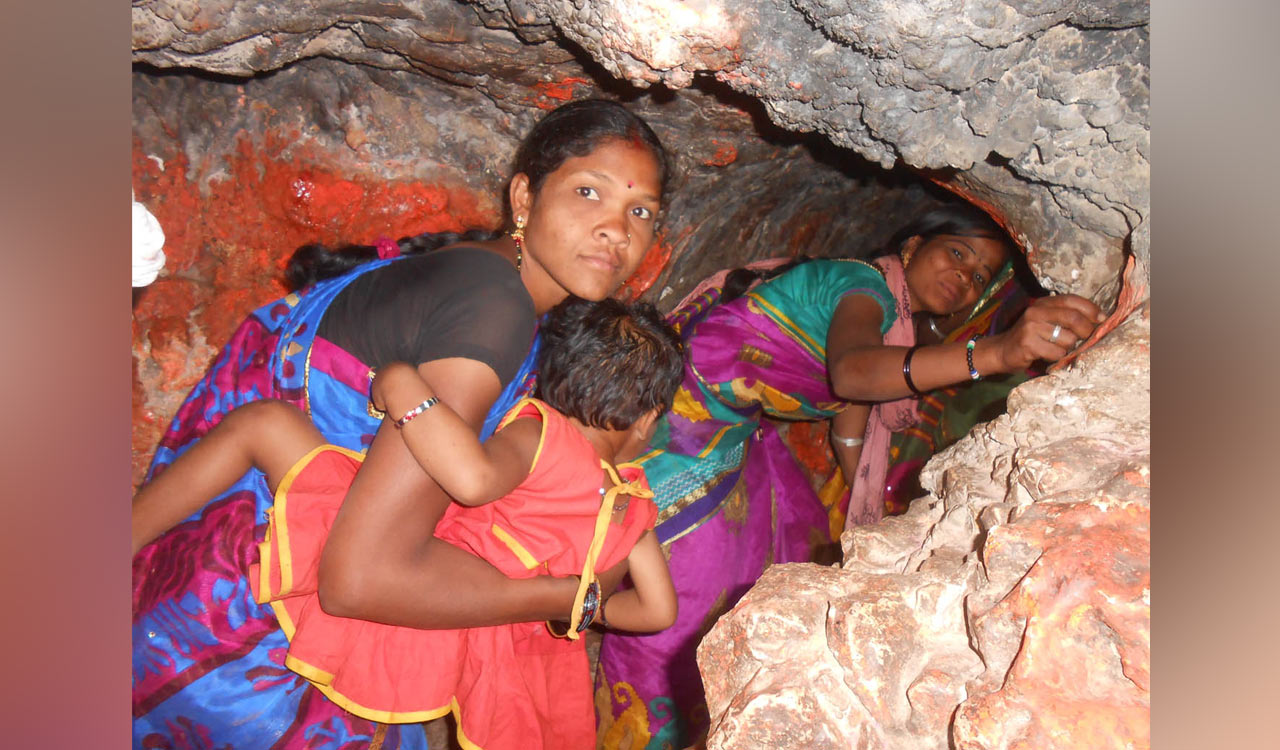The month-long fair is an important religious and cultural affair of the Raj Gonds and Kolams
Published Date – 24 January 2024, 06:23 PM

Gond womendevotees throng the ancient cave temple.
Kumram Bheem Asifabad: The stage is set for celebrating the annual Jangu Bai Jatara at a cave temple of the deity in Sahyadri hills in the forests of Kotaparandoli village in Kerameri mandal from January 25. The month-long fair is an important religious and cultural affair of the Raj Gonds and Kolams.
Jangu Patel, a member of the organising committee of the fair, told ‘Telangana Today’ that the fair would start with tribals performing a major ritual ‘Divve Niruswal’ or lighting of the lamp which represents the deity at the temple on the onset of Pushya or Poos month on Thursday. He stated that elaborate arrangements have been made for smooth conduct of the fair.
25,000-year-old temple
The ethnic tribes ceremoniously revere Jangu Bai, who according to Adivasis, with the deity believed to have been found in the cave 25,000 years ago. They gather at the temple and take a holy dip in a tank locally known as Toplakasa before entering the abode of the deity. They perform traditional prayers and certain rituals as per traditions and customs.
A major proportion of devotees reach the temple by carrying a bamboo basket on their heads, beating drums and playing traditional instruments such as Sannayi, Kalikom and Tudum. The baskets contain ingredients required for preparing dishes to be presented to the deity and performing the prayers. The ingredients include rice milled through traditional methods, wheat, jaggery and oil extracted from either sesame or castor seeds.
They then prepare a special Naivedyam and offer it to her by performing deepotsavam.
Later, certain devotees sacrifice hens and sheep to goddesses Maisamma, Pochamma and Ravudk as a token of gratitude for their wellbeing. The devotees conduct mass dining after taking darshan of the deity and participating in the prayers. Tribal artistes present cultural programmes, enthralling the devotees.
The hilly environs of the shrine become alive with the arrival of the hundreds of the tribals and the conduct of the ceremonious religious affair and a wide range of glittering cultural events. Tribals from several parts of Telangana and neighboring Maharashtra, Chhattisgarh and Madhya Pradesh congregate here and worship the deity.


